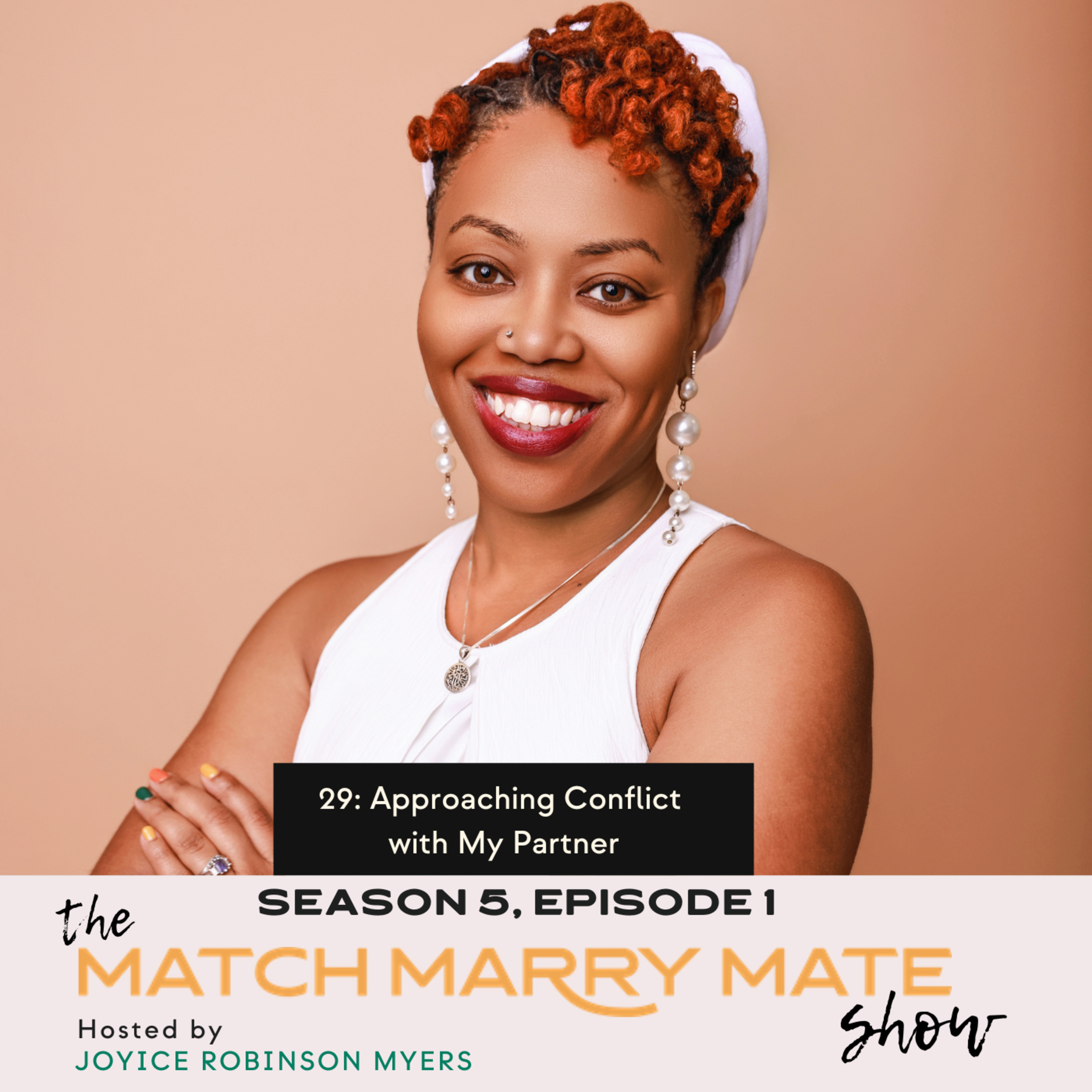29: Approaching Conflict With Your Partner
- Author
- Joyice Robinson Myers, PhDc
- Published
- Fri 11 Oct 2024
- Episode Link
- https://podcasters.spotify.com/pod/show/forlovesake/episodes/29-Approaching-Conflict-With-Your-Partner-e2pe3ga
Welcome to Season 5–titled “We Got Issues,” because, let’s be honest, it happens! To build and maintain healthy relationships, we need to learn how to address them.
We’re starting the season with a generic approach to relationship conflict. Conflict is not only an inevitable part of life and relationships but an important one. So many of us are conflict-avoidant or exhibit unhealthy conflict patterns. But not to worry, we can all level-up on our skills required to approach conflict in a way that promotes satisfaction and relationship quality.
Join me for a discussion about some basic conflict-management skills:
- how to sequence track
- how to identify unmet needs
- how to express vulnerability
- how the role of culture and conditioning impacts your approach to conflict
- how to identify and disrupt negative feedback loops
By the end of this episode, I hope that you realize that conflict is not something to fear, but a chance to understand other people and yourself more deeply. To show up for ourselves and our relationships, rather than avoiding conflict, it’s essential that we learn how to approach it!
HOW I CAN HELP YOU: Interested in mentorship or coaching? Choose your option here.
HOW YOU CAN HELP ME: Contribute to my dissertation by sharing your romantic experiences.
Submissions:
- Submit your Secret Story or email me a [email protected]
- Book your Awareness + Secret Story Session
- Submit your Safe Story
Literature & Links Mentioned:
- The Monthly Conversation: October 2024
- Join Me On Clubhouse
- Flight, Fight, Freeze, Fawn
- The Relationship Fights You Keep Having
Connect with Me:
Website: https://matchmarrymate.com/
Instagram: @matchmarrymate
Pateron: Become a Patron
Work With Me: Book a Call
Be Featured: Share a Secret Story
Time Stamps:
[00:44] An overview of the hot topics that you can expect from Season 5
[05:13] What’s up with these conflict-avoidant people?
[06:16] Esther Perel said, “You cannot differentiate when you never fight”
[07:04] The benefits of conflict in relationships
[08:05] What healthy and unhealthy approaches to conflict look like
[09:36] “Real fights” versus surface-level fights
[11:22] How does sequence-tracking technique work?
[12:57] What we’ll be discussing in October’s Monthly Conversation.
[14:18] The steps involved in sequence-tracking
[15:05] The relationship “negative feedback loop” and how to disrupt it
[17:18] A practical tip for dealing with conflict.
[18:32] I am here to help answer your relationship questions
[19:16] Exploring how conditioning and culture impact the way we approach conflict
[20:10] How my personal conditioning and culture influences my approach to conflict
[23:14] Encouragement to identify the factors that influence the way you approach conflict
